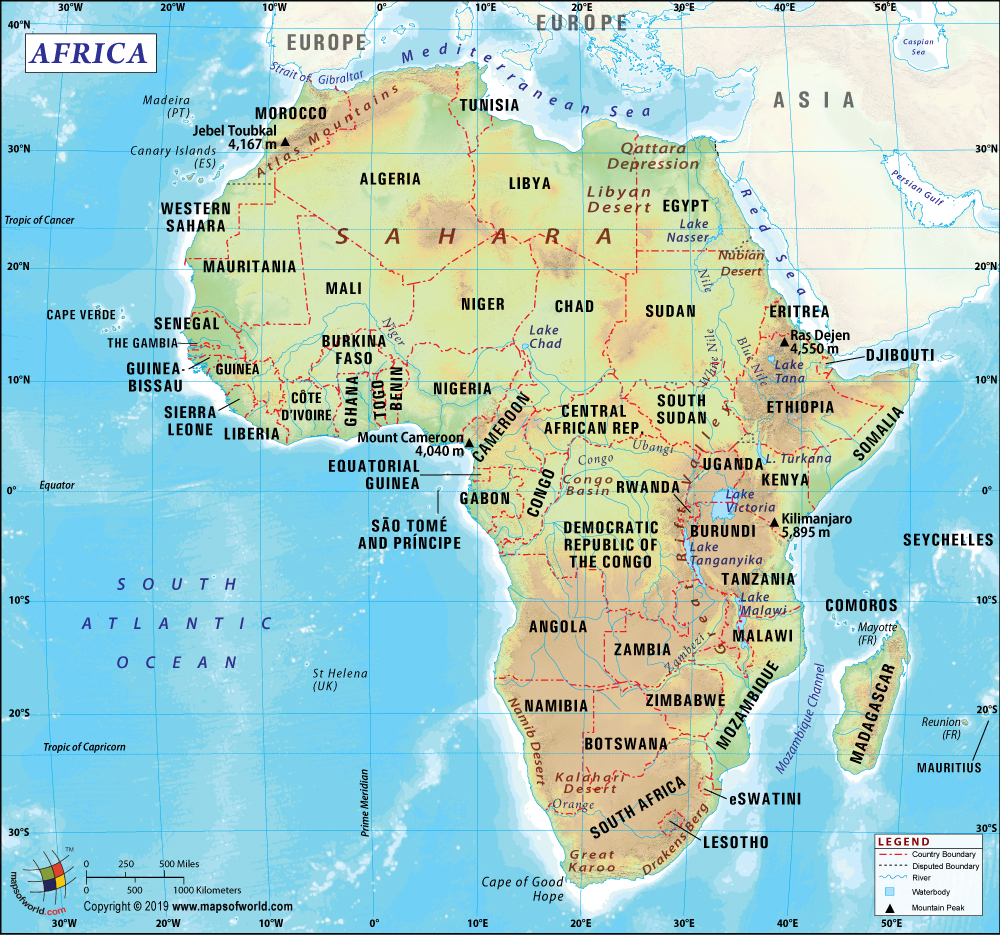Why was Africa Called the Dark Continent?

Sir Henry Morton Stanley (1841-1904), the Welsh explorer, who became well-known for his exploration of central Africa, is believed to have coined the term “Dark Continent” when he wrote of his explorations in his book Through the Dark Continent.
Was There an Undercurrent of Racism?
Over the many decades that the term “Dark Continent” has been used to refer to Africa, it cannot be denied that there is some association with skin color and racism. Given the great struggles that the continent has faced against slavery and apartheid, this is quite understandable. However, it is also possibly the narrowest interpretation of this term.
Did it Refer to Unexplored Land?
To understand the origin and the mystique of the term “Dark Continent”, let us take a look at the exploration of Africa by Europeans. While the existence of the continent itself was known to the Europeans since the 8th to 6th centuries BC, exploration of Africa by the Europeans did not start until the 15th century.
Bartolomeu Dias, a nobleman of the Portuguese royal household, was a Portuguese explorer. He sailed around the southernmost tip of Africa in 1488. Subsequently, he became the first European to find a sea route to the Cape of Good Hope. Despite such an awareness of the location of the continent itself, the maps were painfully inadequate in details.
Moreover, Central Africa remained largely unexplored. The maps of 15th to 18th century only outlined the geography of the coasts. Later, the introduction of new cartographic devices made some of the old maps redundant. Till the 19th century, when explorers such as Sir Richard Burton, David Livingstone, and Sir Henry Morton Stanley started their explorations, the heart of the continent remained largely “dark” or unknown.
Was it the Unfamiliar Culture and Faith?
Another reason for referring to Africa as the “Dark Continent” could perhaps be the fact that nothing much was known about the continent, its people, and its culture. It could also be the geography – its vast and thick jungles, deserts, mountains, the unfamiliar flora and fauna, that gave rise to a great deal of curiosity about Africa. This was harnessed by the imagination of writers and the fantastic accounts of explorers who imagined a savage, untamed society. This would certainly explain the moniker.
By the 19th-century, Christian missionaries had also centred on Africa as a much-favoured destination to spread the word of God. They had expected to be received with much adoration and reverence. However, they found it a rather uphill task to draw people away from their traditional faiths. The missionaries blamed this on the ‘savage’ ways that Africans had been living, and the rampant slavery that had existed for centuries. This also led them to deem Africa as the “Dark Continent”.
Lack of ‘Light’ in The Age of Enlightenment
One of the most important ideological movements that revolutionized Europe was the Age of Enlightenment. The 18th-century saw the advent of famous philosophers such as Descartes, Locke, Hume, Kant, and Spinoza. They emphasized on the ‘light’ of reason and explored empirical study, as opposed to the acceptance of religious dictates. Apart from having a profound impact on European social and political thought, it also led to the declaration of this ‘light’ deprived Africa as a Dark Continent.
Related Links:

